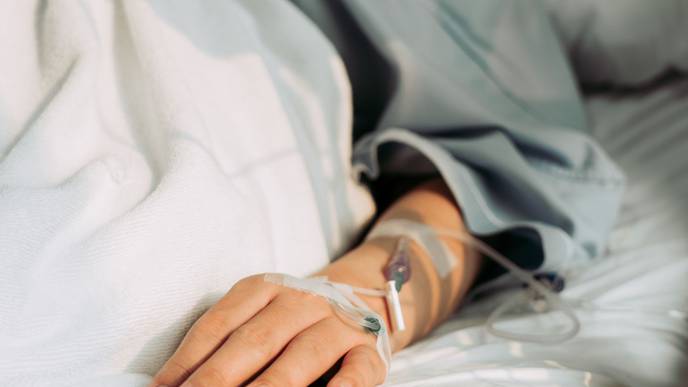Cryocompression May Reduce Peripheral Neuropathy in Gynecologic Cancer

06/30/2023
Cryocompression can reduce subjective peripheral neuropathy in patients with gynecologic cancer undergoing chemotherapy, according to a study presented at the 2023 SGO Annual Meeting on Women’s Cancer.
Patients reported a significant reduction in moderate to severe peripheral neuropathy with cryocompression, and most patients deemed cryocompression acceptable and tolerable.
Researchers conducted this single-center study in 91 patients with gynecologic cancer. Patients were scheduled to undergo a planned 5 cycles of cisplatin (n=1) or 6 cycles of paclitaxel (n=90). Most patients had ovarian cancer (54.9%), followed by uterine (41.8%) and cervical (3.3%) cancers.
Continue Reading
Patients served as their own controls. They were randomly assigned to cryocompression applied to the dominant vs non-dominant hand and foot, with standard of care treatment or no intervention on the opposite hand and foot.
For the intervention, patients wore compression socks and undersized gloves and had bags of ice placed on their hands and feet. Cryocompression was started 15 minutes before chemotherapy and continued through 3 hours of treatment until 15 minutes after treatment completion.
According to results from the Patient Neurotoxicity Questionnaire, cryocompression decreased the odds of moderate to severe sensory peripheral neuropathy by 46% (odds ratio, 0.54; 95% CI, 0.31-0.94; P =.03).
At baseline, the rate of moderate to severe peripheral neuropathy (PNQ grade ≥ C) was 2.2% in the control group and 3.3% in the cryocompression group. At the final assessment, rates were 17.6% and 9.9%, respectively.
Scores on the Functional Assessment of Cancer Therapy – Taxane (FACT-NTX4) questionnaire were higher for the control group than for the cryocompression group (with higher scores indicating peripheral neuropathy).
FACT-NTX4 scores were 0.04 in both groups at the initial visit. At the final assessment, the score was 1.26 in the control group and 0.91 in the cryocompression group (P < .036).
There was no significant difference between the groups with regard to tactile sensitivity, based on the monofilament test.
Most patients said cryocompression was very tolerable (75%) or somewhat tolerable (20%). Most said they strongly agree (78%) or agree (20%) that cryocompression is acceptable.
“Compared to standard of care treatment, cryocompression therapy significantly reduced subjective chemotherapy-induced peripheral neuropathy in patients with gynecologic cancer and was acceptable and tolerable,” said study presenter Mary Katherine Montes de Oca, MD, of Duke University Hospital in Durham, North Carolina.
“There were no significant differences in objective neuropathy between groups. These findings are important as cryocompression may reduce toxicities related to chemotherapy and improve quality of life for patients with gynecologic cancer.”
Disclosures: Dr Montes de Oca reported having no conflicts of interest.
Reference
Montes de Oca MK, Unnithan S, Erkanli AAE, et al. Use of cryocompression to reduce peripheral neuropathy in gynecologic cancer: A randomized controlled trial. Presented at SGO 2023. March 25-28, 2023.

Facebook Comments